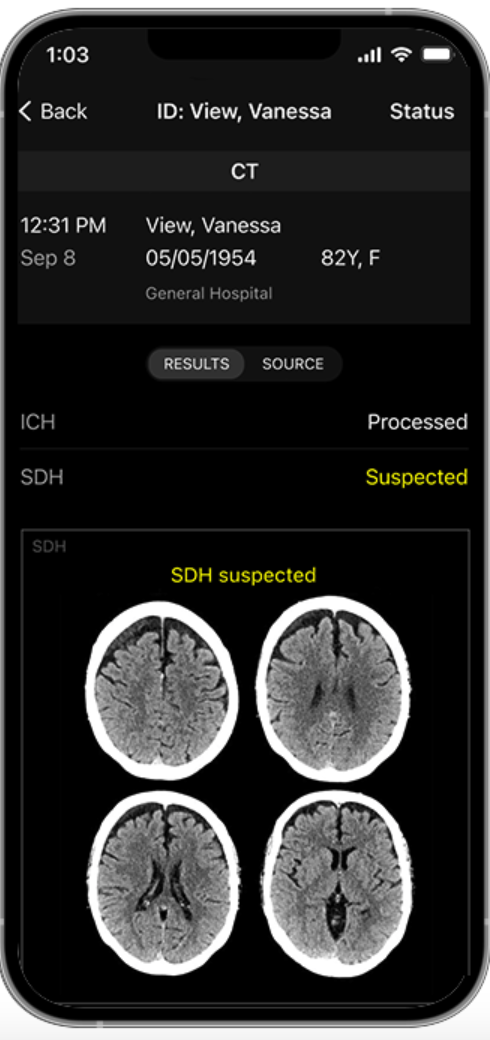RapidAI Nets FDA Clearance for AI Module That Detects Hemispheric Subdural Hematomas
Images

The US FDA has cleared Rapid SDH, an AI-powered module from RapidAI for the detection and notification of suspected hemispheric acute and chronic subdural hematoma.
Together with Rapid ICH and Rapid Hyperdensity, the three modules comprise RapidAI’s hemorrhagic and trauma care AI solution, designed to help teams on the front lines of patient assessment streamline decision making and expedite patient care.
The need for the RapidAI solution is urgent, with SDH cases in US patients expected to increase by nearly 80% before 2040 and current estimated mortality rates at 40-60% –underscored by neurosurgical workforce shortages across the country. Rapid SDH leverages AI and the intelligence gained from analyzing hundreds of patient scans to help neurocritical care teams identify suspected hemispheric subdural hemorrhage faster and with a higher degree of accuracy than traditional methods. With the advanced Rapid mobile app, Rapid SDH automatically sends results to the entire trauma team across the hospital system or treatment network, enabling clinicians to make more timely and informed transfer and treatment decisions for patients with traumatic brain injury or hemorrhagic stroke.
Key features of Rapid SDH and the trauma care solution include a hemorrhagic and trauma package to feature hemispheric SDH, ICH and Hyperdensity for faster and complete patient assessment. Rapid SDH also offers Positive Predictive Value (PPV) of 99% (sensitivity 93%, specificity 99%) for suspected acute and chronic hemispheric subdural hematomas >1mL Faster results by notifying clinicians in 1 minute or less. It automatically sends notifications through the Rapid mobile app, PACS, and email facilitating treatment and transfer decisions of patients with subdural hematomas.
"The FDA's clearance of Rapid SDH significantly enhances our expanding range of hemorrhagic and trauma care solutions at this crucial time of rapidly growing patient numbers, clinician shortages, and advancements in potential treatment options,” said Amit Phadnis, CTO of RapidAI. “Our goal is to continue to expand the capabilities and applications of our deep AI to deliver comprehensive clinical solutions that provide care teams with the crucial insights necessary to evaluate patients, streamline decision making, and expedite care for this common and dangerous disease.”
Related Articles
Citation
. RapidAI Nets FDA Clearance for AI Module That Detects Hemispheric Subdural Hematomas. Appl Radiol.
November 13, 2023